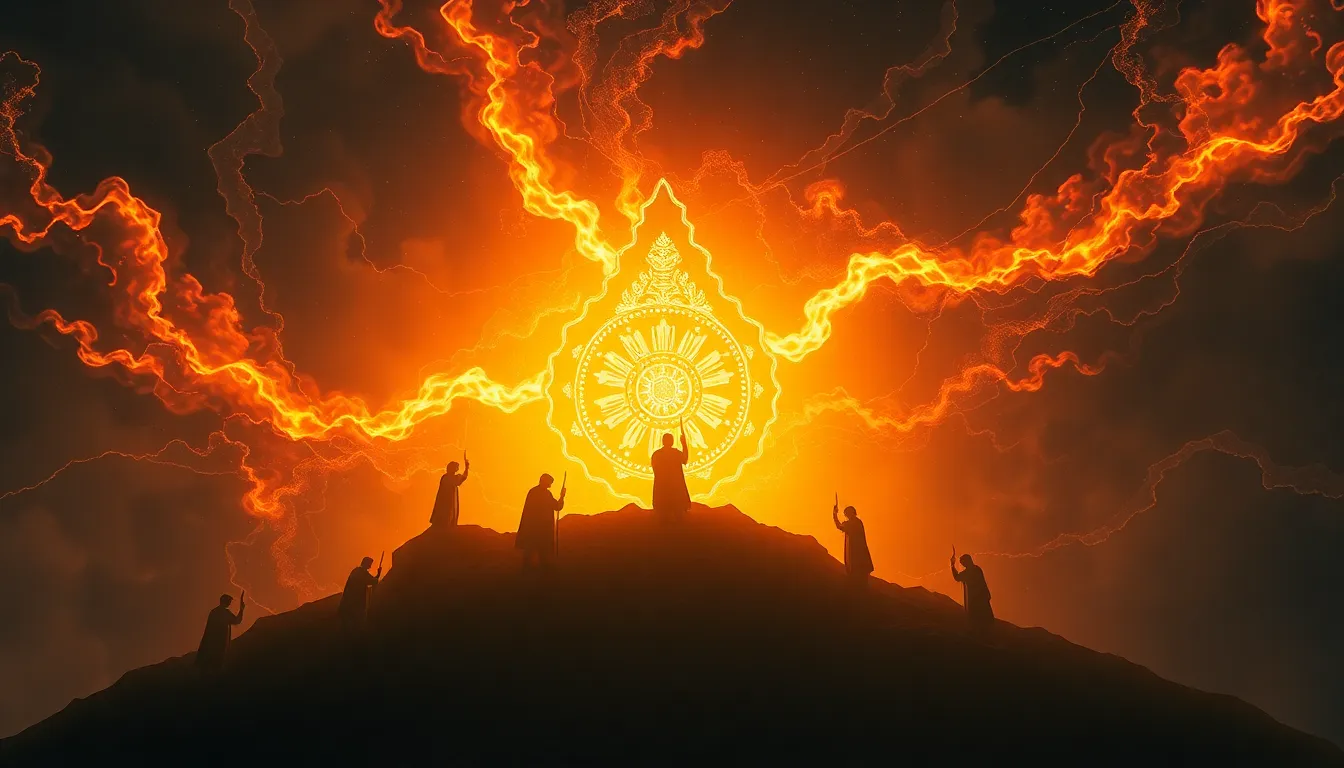The Role of Myths in Shaping Our Moral Framework
1. Introduction to Myths and Morality
Myths are narratives that have been passed down through generations, often embodying the beliefs, values, and cultural identities of societies. They serve not only as entertainment but also as vehicles for conveying deep truths about the human condition. In contrast, moral frameworks are systems of principles that guide individuals in discerning right from wrong. These frameworks are vital for maintaining order and harmony within societies.
Thesis statement: Myths serve as a foundational element in shaping moral values and guiding ethical behavior across cultures. Through their rich narratives, myths provide a context for understanding moral dilemmas, instilling values, and fostering community cohesion.
2. Historical Context of Myths in Moral Development
Throughout history, ancient civilizations have relied on myths to articulate their understanding of the world and their place within it. Myths have often been employed to impart moral lessons and establish societal norms. For instance:
- Greek Myths: Tales such as those of Prometheus highlight themes of sacrifice and the consequences of defiance against divine order.
- Roman Myths: The stories of Aeneas emphasize duty, loyalty, and the importance of community over individual desires.
- Indigenous Myths: Many Indigenous cultures use myths to connect with nature and teach respect for the environment and communal living.
3. Types of Myths and Their Moral Implications
Myths can be categorized into several types, each with distinct moral implications:
- Creation Myths: These myths explain the origin of the world and humanity, often emphasizing themes of respect for nature and the divine.
- Hero Myths: Stories like those of Hercules or Gilgamesh illustrate virtues such as bravery, perseverance, and the quest for justice.
- Cautionary Tales: Myths such as Pandora’s Box serve as warnings about the consequences of disobedience and curiosity.
These different types of myths convey specific moral messages that resonate with the values of the societies from which they emerge.
4. The Psychological Impact of Myths on Moral Beliefs
The psychological impact of myths is profound, as explored by Carl Jung, who introduced the concepts of archetypes and the collective unconscious. Myths resonate with innate human experiences and emotions, allowing individuals to connect with universal themes. Storytelling plays a crucial role in shaping both individual and collective morality by:
- Providing relatable scenarios that provoke emotional responses.
- Offering models of behavior through characters that embody moral virtues or vices.
- Encouraging reflection on personal values and ethical decisions.
5. Myths as Tools for Social Cohesion
Myths foster community identity and shared values, serving as a glue that binds societies together. They play a critical role in establishing social norms and rules, often reinforcing the behaviors that are deemed acceptable. Examples include:
- The myth of the “noble savage” in many Indigenous cultures promotes unity and respect for communal living.
- Greek myths often emphasized the importance of hospitality and loyalty, shaping social interactions.
- Creation myths that emphasize the interconnectedness of all beings encourage collective responsibility for the environment.
6. Contradictions and Moral Ambiguity in Myths
Not all myths present clear moral lessons; many explore contradictions and moral ambiguity. These complexities often reflect real-life ethical challenges. For instance:
- The myth of Oedipus presents a tragic hero who unwittingly fulfills a prophecy, raising questions about fate versus free will.
- The stories of gods like Zeus, who exhibit both benevolence and cruelty, illustrate the duality of moral behavior.
Such ambiguities challenge readers and listeners to grapple with their interpretations and the implications for their own moral decisions.
7. Modern Interpretations of Ancient Myths
Contemporary society continues to reinterpret ancient myths, often using modern media and literature to explore moral themes. Notable examples include:
- Films: Movies like “Wonder Woman” draw on Greek mythology to discuss themes of empowerment and justice.
- Books: Novels such as “Circe” by Madeline Miller retell myths from a feminist perspective, challenging traditional moral narratives.
- Art: Contemporary artworks often reinterpret mythological themes to address current social issues, such as identity and belonging.
8. Myths in Relation to Religious and Philosophical Frameworks
Myths often intersect with religious texts and philosophical doctrines, complementing or challenging established moral teachings. For example:
- Many religious narratives draw on mythological elements to impart moral lessons, demonstrating the shared human experience across cultures.
- Philosophers may critique mythological morals, exploring secular interpretations that prioritize reason and ethics over divine command.
This interplay between myths, religion, and philosophy enriches our understanding of morality and its foundations.
9. Critiques of Mythological Morality
Despite their significance, myths face critiques regarding their relevance in modern ethics. Some arguments include:
- The potential for myths to perpetuate outdated or harmful moral frameworks.
- The risks of adhering blindly to myth-based morals without critical examination.
- Perspectives from contemporary philosophers who argue for a more nuanced understanding of morality that transcends traditional mythological narratives.
These critiques encourage ongoing dialogue about the role of myths in shaping our moral landscapes and the need for adaptability in ethical considerations.




